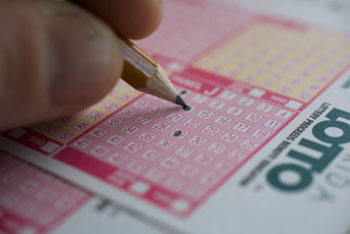 I was asked a question yesterday I haven’t been asked in a long time: Why doesn’t the federal government start a national lottery for deficit reduction purposes?
I was asked a question yesterday I haven’t been asked in a long time: Why doesn’t the federal government start a national lottery for deficit reduction purposes?
Where do I start?
In effect, there already is a national lottery. Powerball and Mega Millions are both games sold in multiple states with potentially very large prizes. And the latest report (which I suspect is what prompted the yesterday’s question) indicates that the multi-state games may soon be expanding.
A new federal lottery would compete with both the individual state and multi-state games and federal revenues would likely be increased at the expense of state income. The governors would strongly object and would pressure their federal delegations to vote against any legislation creating a national lottery (Trust me on this. Over the past 20 years I have been in multiple meetings where this has been discussed by people in a position to make the threat a reality).
To get the necessary support for the lottery authorization, the federal government would have to offer states some type of revenue sharing, that is, some substantial percentage of the revenue collected as a result of federal lottery ticket sales would be paid to the states. That formula would be a nightmare and the issues extremely hard to settle. Should the federal revenue only be shared with states that have their own lottery and which would be presumed to lose sales because of the federal incursion? Would states that don’t have lotteries demand that they also be included? Would sharing the revenue with all 50 states plus districts and territories so reduce the revenues going to the federal government that it wouldn’t be worth the effort?
There is also the question of the size of the prize the federal government would have to offer to get people to play its game. Powerball and Mega Million prizes sometimes are in the hundreds of millions of dollars, so the federal government presumably would have to offer something more. A billion? An aircraft carrier? A lifetime exemption from paying income tax?
And what about the odds the federal government would have to or be allowed to offer? Wouldn’t the states demand that the odds of a federal game be no better than what they offer in their state?
There would also be opposition to a national lottery from some religious groups, Las Vegas and Atlantic City, other casinos around the country, and anti-gambling organizations. Even though buying a ticket would be voluntary, it would also be characterized as a regressive tax on the poor because they tend to play lotteries more than higher-income groups.
Bottom line…It’s not worth the effort and isn’t going to happen any time soon.
- Bulenox: Get 45% to 91% OFF ... Use Discount Code: UNO
- Risk Our Money Not Yours | Get 50% to 90% OFF ... Use Discount Code: MMBVBKSM
Disclaimer: This page contains affiliate links. If you choose to make a purchase after clicking a link, we may receive a commission at no additional cost to you. Thank you for your support!


Leave a Reply